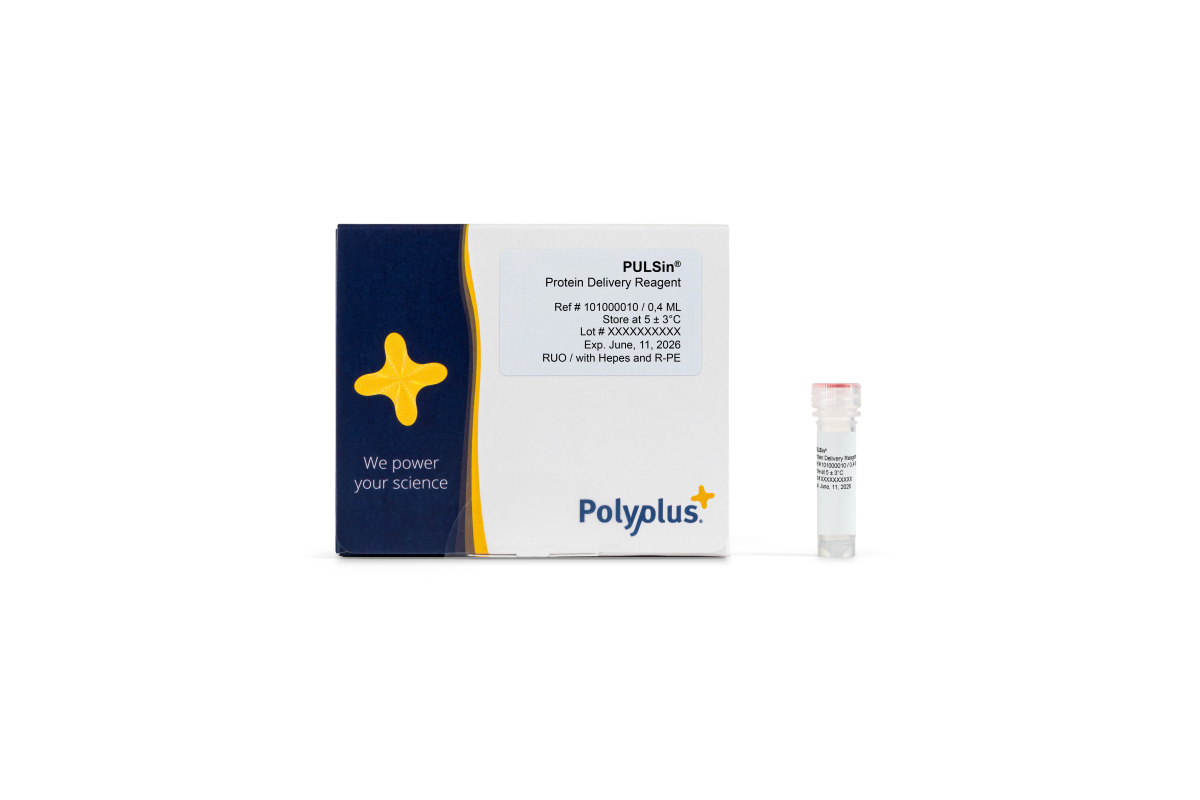
PULSin® Protein Delivery transfection reagent
PULSin® consists of a proprietary cationic amphiphilic molecule that forms non-covalent complexes with proteins and antibodies. Once formed, these complexes enter cells via anionic cell-adhesion receptors and are released into the cytoplasm, where they disassemble. The process is non-toxic and enables the delivery of functional proteins.
0.4 ml of PULSin® delivery reagent is sufficient for 25 delivery experiments in 6-well plates or 100 experiments in 24-well plates.
Key benefits
- unique – one reagent for the delivery of proteins, antibodies, and peptides into mammalian cells
- optimized – efficient delivery into live primary and hard-to-transfect cells
- innovative – simple alternative to chemical conjugation and viral transduction
Cell type applications
- adherent and suspension cells grown in the presence of serum

Protein Delivery Independent of Size
PULSin® can deliver R-phycoerythrin, a fluorescent protein (240 kD), into the cytoplasm of up to 98% of cells. The protein is evenly distributed in the cytoplasm and excluded from the nucleus due to its size.
PULSin® Efficiently Delivers Antibodies into Live Cells
Antibodies are successfully delivered into mammalian cells and can recognize their target protein within the cytoplasm. PULSin® enabled the delivery of FITC-labeled anti-alpha-tubulin into the cytoplasm of 85% of HeLa cells. Similarly, anti-giantin labeled with Alexa Fluor® 488 was delivered to 98% of live HeLa cells, labeling the Golgi apparatus.


Simple Alternative to Chemical Conjugation and Viral Transduction
A comparison of PULSin® with two other protein delivery reagents shows higher protein delivery efficiency. Moreover, the amount of protein delivered per cell is greater with PULSin®, as demonstrated with R-phycoerythrin and FITC-anti-alpha-tubulin.
Simple Protocol for Successful Protein Delivery
PULSin® saves time and effort compared to techniques like viral transduction or chemical conjugation. The reagent is ready-to-use and comes with a dilution buffer and a fluorescent control protein (R-phycoerythrin).
The protocol is fast – simply mix the reagent with the protein, incubate, and apply to cells. Cells can be analyzed as early as 4 hours after delivery.



